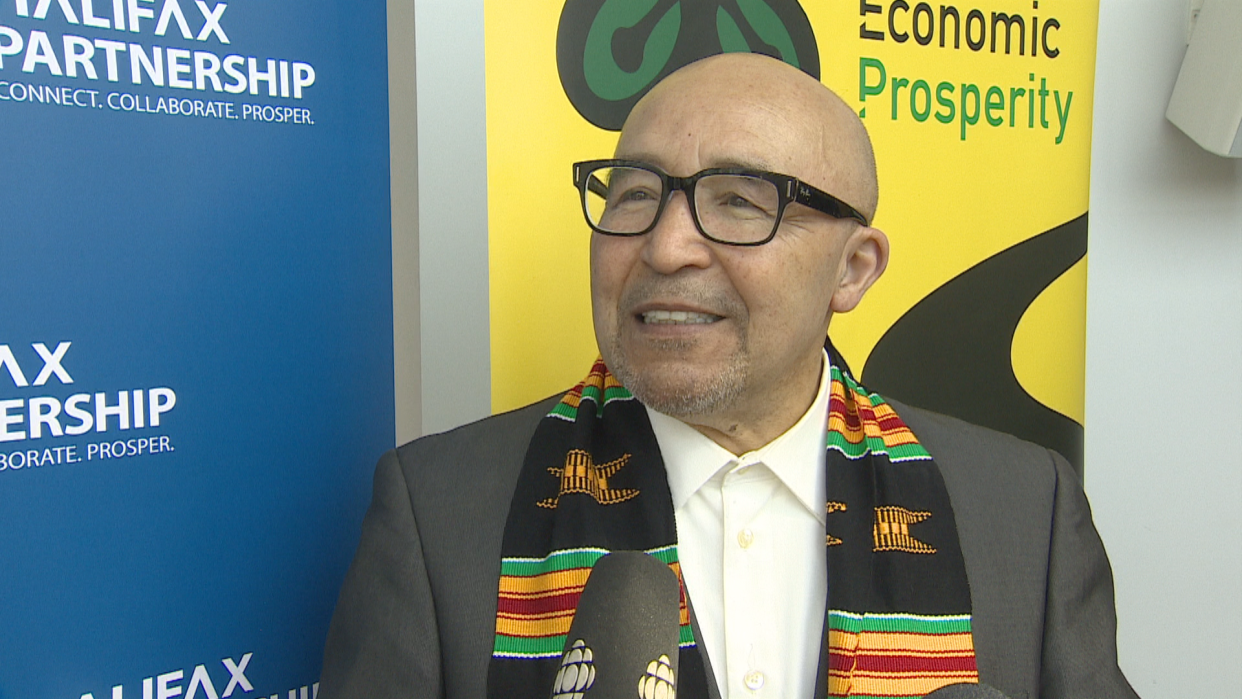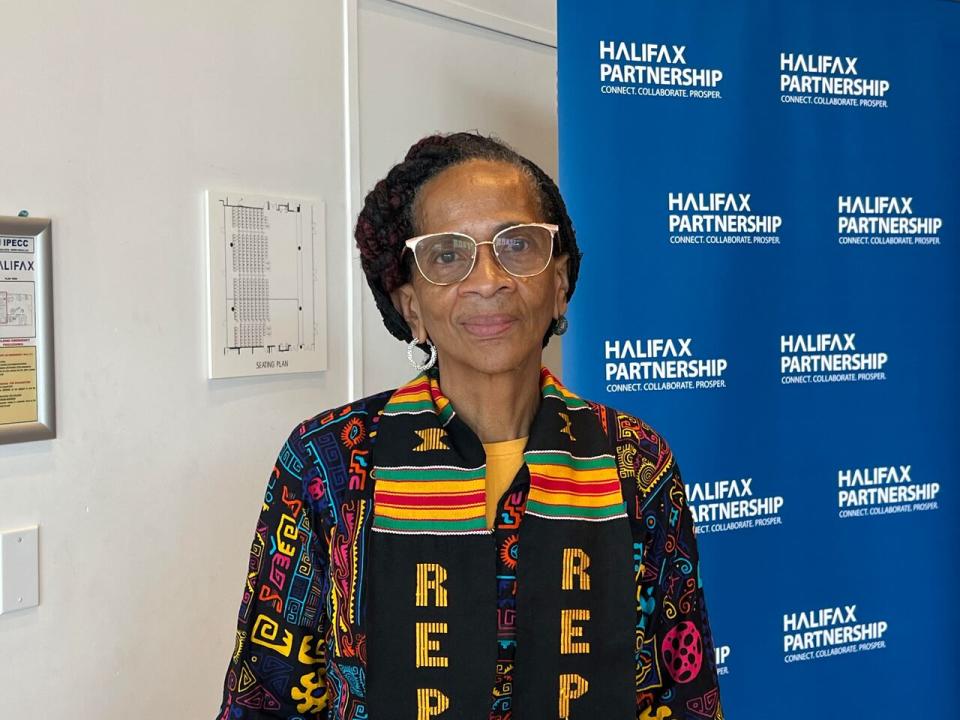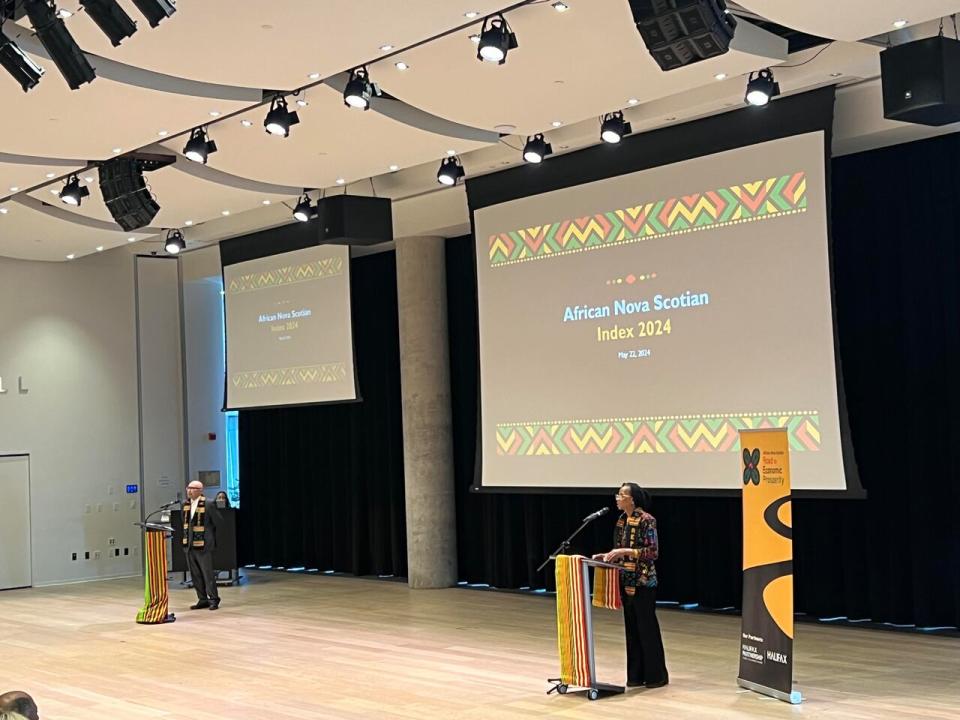New report provides baseline of social, economic indicators in N.S. Black community

A three-year initiative to measure social and economic indicators in African Nova Scotian and Black immigrant communities in the province showed continuing gaps in housing, wages and employment, prompting calls for more Black-led economic development and data collection.
The African Nova Scotian Prosperity and Well-Being Index, released Wednesday at the Halifax Central Library, is believed to be the first of its kind in Canada.
The index was developed as part of the African Nova Scotian Road to Economic Prosperity, an economic development strategy created and led by the province's Black community.
Using the most recently available data, the index is meant to serve as a baseline of the social and economic disparities that exist between the Black community and the rest of the province, as well as gaps in data and research.
"The index is a measuring tool," said Irvine Carvery, co-chair of the Road to Economic Prosperity advisory council. "What doesn't get measured, doesn't get changed."
6 key areas studied
The index covered six key areas: population, income, housing, education, labour and well-being.
Among its findings, the index said the rising cost of housing is having a disproportionate impact on Black communities because of the gap in financial outcomes that exists between those communities and the larger population.
While the index said Black Canadians face higher unemployment rates than white people, it noted the gap is narrowing in Nova Scotia. It also said average Black incomes are lower than non-minority incomes, though that gap also appears to be getting smaller, particularly for women.
It found 43 per cent of Black people earn less than $20,000 a year, compared to 31 per cent of non-minority Nova Scotians. On average, Black Nova Scotians earn between 14 per cent and 27 per cent less than their white counterparts.
The average after-tax income in 2020 for Black Nova Scotian males, for example, was $10,120 lower than the average for non-visible minority males.
As of 2021, Nova Scotia's Black population was 28,220. The index said 20.4 per cent of those people identified as Black immigrants.

Carolann Wright is the executive director of the Road to Economic Prosperity team at the Halifax Partnership, a local economic development organization. (Kathleen McKenna/CBC)
Carolann Wright, executive director of the Road to Economic Prosperity team at the Halifax Partnership, said the statistics show where initiatives are needed to improve economic conditions. She said one of the most important recommendations is to increase African Nova Scotian participation in census data collection.
"If a government doesn't have accurate statistics, it is not going to create accurate programs for the community," she said.
Little historical data
The data in the index was compiled through partnerships with Statistics Canada and Dalhousie University.
Carvery said historically, little data has been collected on the African Nova Scotian population. The data sets provided by StatsCan, for instance, only went back three generations.
"We need our own sources of data. We need desegregated data that's reflective of the African Nova Scotian community," he said.
Unlike now, Carvery said data collection was not a priority for past generations of African Nova Scotians

The African Nova Scotian Prosperity and Well-Being Index was presented Wednesday at the Halifax Regional Library. The index was created to compile and interpret data from a Black perspective. (Kathleen McKenna/CBC)
"Our struggle was to gain our civil rights [for] today's generation. Even with the index, if you look at the numbers around education, you can see where we have increased our numbers in terms of university education," he said.
"People are beginning to look at our situation through a different lens."
The index found that 31.8 per cent of Black Nova Scotian adults between the ages of 25 and 64 hold a university degree, compared to the non-minority population share of 27.1 per cent.
Going forward
This year's index will form the basis of annual indexes, and its information will be used as the African Nova Scotian and Black immigrant communities work to achieve the goals of the Road to Economic Prosperity strategy.

Shekara Grant is the co-chair of the youth council for the Road to Economic Prosperity. (Kathleen McKenna/CBC)
Shekara Grant, co-chair of the youth advisory council for the group, said self-determination is very important when it comes to data collection.
"I have a parent that's an immigrant, but on my other side, I'm an eighth-generation African Nova Scotian. If I were to be counted in the census, I would not be counted as third generation or more because they count based on immigration status first," she said.
"So I think the actual success of this will be the longitudinal study. So what does this index look like, you know, over the next 10, 20 to 30 years, and have these determinants changed? That will be the question."
For more stories about the experiences of Black Canadians — from anti-Black racism to success stories within the Black community — check out Being Black in Canada, a CBC project Black Canadians can be proud of. You can read more stories here.

(CBC)
MORE TOP STORIES


